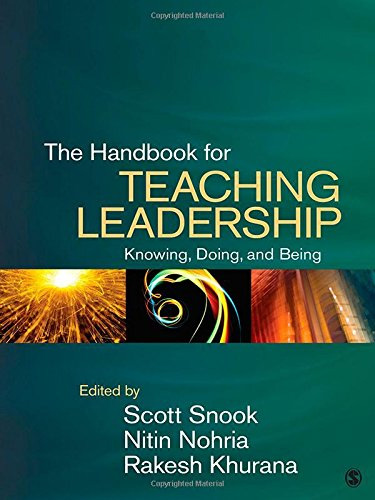The Editors of the “Handbook for Teaching Leadership” (where this paper appears as Chapter 16) ask the following in their introductory chapter: “How does one teach leadership in a way that not only informs [students] about leadership but also transforms them into actually being leaders?” (p. XXIV).
The sole objective of our ontological/phenomenological model for creating leaders is to leave students actually being leaders and exercising leadership effectively as their natural self-expression. By “natural self-expression” we mean a way of being and acting in any leadership situation that is a spontaneous, intuitive and effective response to what one is dealing with.
In creating leaders we employ the ontological discipline (from the Latin ontologia “science of being”). The ontological model of leader and leadership opens up and reveals the actual nature of being when one is being a leader and opens up and reveals the source of one’s actions when exercising leadership. And, ontology’s associated phenomenological methodology (explained in 2 below) provides actionable access to what has been opened up.
The being of being a leader and the actions of the effective exercise of leadership can be accessed, researched, and taught either:
1) as being and action are observed and commented on “from the stands”, specifically as these are observed by someone, and then described, interpreted and explained (third-person concept of), or
2) as being and action are actually lived and experienced real time “on the court”, specifically the way being and action are actually present for the player herself (first-person experience of). As a formal discipline, the “on the court” method of accessing being and action (that is, accessing being and action as they are actually lived) is named phenomenology.
In short, an epistemological mastery (a from-the-stands mastery) of a subject leaves one knowing.
An ontological mastery (an on-the-court mastery) of a subject leaves one being.
Of course the students themselves do not need to study ontology; they only require the access to being and the source of action that is provided by the ontological perspective. And, they don’t need to study phenomenology; they only need to be provided with the actionable pathway to the being of being a leader and the actions of the effective exercise of leadership made available by the phenomenological methodology.
Editors, Scott Snook (Senior Lecturer), Nitin Nohria (Dean of Harvard Business School) and Rakesh Khurana (Dean of Harvard College)

